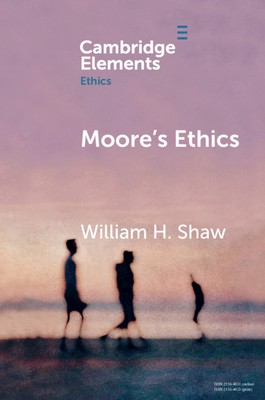
- We will send in 10–14 business days.
- Author: William H Shaw
- Publisher: Cambridge University Press
- ISBN-10: 1108706541
- ISBN-13: 9781108706544
- Format: 15.2 x 22.9 x 0.4 cm, minkšti viršeliai
- Language: English
- SAVE -10% with code: EXTRA
Reviews
Description
This Element critically surveys the full range of G. E. Moore's ethical thought, including: (1) his rejection of naturalism in favor of the view that 'good' designates a simple, indefinable property, which cannot be identified with or reduced to any other property; (2) his understanding of intrinsic value, his doctrine of organic wholes, his repudiation of hedonism, and his substantive account of the most important goods and evils; and (3) his critique of egoism and subjectivism and his elaboration of a non-hedonistic variant of utilitarianism that, among other things, creatively blends aspects of act- and rule-oriented versions of that theory.
EXTRA 10 % discount with code: EXTRA
The promotion ends in 21d.21:45:45
The discount code is valid when purchasing from 10 €. Discounts do not stack.
- Author: William H Shaw
- Publisher: Cambridge University Press
- ISBN-10: 1108706541
- ISBN-13: 9781108706544
- Format: 15.2 x 22.9 x 0.4 cm, minkšti viršeliai
- Language: English English
This Element critically surveys the full range of G. E. Moore's ethical thought, including: (1) his rejection of naturalism in favor of the view that 'good' designates a simple, indefinable property, which cannot be identified with or reduced to any other property; (2) his understanding of intrinsic value, his doctrine of organic wholes, his repudiation of hedonism, and his substantive account of the most important goods and evils; and (3) his critique of egoism and subjectivism and his elaboration of a non-hedonistic variant of utilitarianism that, among other things, creatively blends aspects of act- and rule-oriented versions of that theory.


Reviews